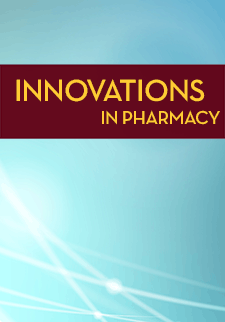Factors that Influence Healthcare Professionals' Intentions towards Biosimilars
Mohammed AL Qahtani
Security Forces Hospital - Dammam, Saudi Arabia
Ahmed Al-Jedai
Colleges of Medicine and Pharmacy, AL Faisal University, Riyadh, Saudi Arabia
Albert Wertheimer
College of Pharmacy, Department of Sociobehavioral and Administrative Pharmacy, Nova Southeastern University, USA
DOI: https://doi.org/10.24926/iip.v15i1.5922
Keywords: biosimilars, intention, Theory of Planned Behavior
Abstract
Background: Physicians often prescribe original biologic products to patients who have not used them before and are reluctant to switch to biosimilars. Biosimilars are highly similar versions of already-approved biologics, but healthcare professionals typically hesitate to transition patients from the original products to biosimilars. This study aims to investigate the factors that influence U.S. healthcare professionals' intentions to use biosimilars.
Methods: A cross-sectional study was conducted. 510 participants were eligible healthcare professionals (279 physicians and 231 pharmacists). The theory of planned behavior (TPB) is used to identify which factors affect healthcare professionals' intentions. Descriptive statistics, chi-square, and the logistic regression model tested the TPB constructs as predictors of intentions toward biosimilars.
Results: Among 279 physicians, most were aged 61 and above, with high (n = 142) and low (n = 137) intentions. Male physicians constituted 71% of the population. Attending physicians (66.3%) showed consistent perceptions towards biosimilars, primarily in the private sector (76.3%). Pharmacists (n = 231), a higher percentage of females demonstrated higher intentions compared to males (35.5% vs. 28.1%); the majority were community pharmacists. Associations between years of practice and intentions were significant. Positive correlations existed between beliefs and intentions, except for normative beliefs.
Conclusions: This study revealed diverse attitudes among healthcare professionals towards biosimilars in the USA. Pharmacists and physicians, especially those with limited experience, require ongoing education on biosimilar manufacturing pathways. This education supports the appropriate use of biosimilars and helps standardize federal and state legislation.
Downloads
Author Biographies
Mohammed AL Qahtani, Security Forces Hospital - Dammam, Saudi Arabia
Dr. Mohammad Abdullah N. Al-Qahtani is a healthcare professional with a bachelor’s degree in pharmacy, a master’s in science in Pharmaceutical Economics and Policy, and a Ph.D. in social and administrative pharmacy. Through his positions, he acquired many skills and a comprehensive understanding of the pharmaceutical field.
Dr. Al-Qahtani contributed to this field through his work at the Security Forces Hospital in Dammam, Kingdom of Saudi Arabia.
Ahmed Al-Jedai, Colleges of Medicine and Pharmacy, AL Faisal University, Riyadh, Saudi Arabia
Professor at Alfaisal University, Colleges of Medicine and Pharmacy, Riyadh, Saudi Arabia Assistant Deputy for Support Medical Services, Saudi MoH. Consultant Clinical Pharmacist, Solid Organ Transplant at King Faisal Specialist Hospital and Research Center, Riyadh, Saudi Arabia.
Albert Wertheimer , College of Pharmacy, Department of Sociobehavioral and Administrative Pharmacy, Nova Southeastern University, USA
Dr. Albert Wertheimer has been active in sociobehavioral and administrative pharmacy research and education for more than 30 years. He earned a pharmacy degree at the University of Buffalo, an M.B.A. from the State University of New York at Buffalo and his Ph.D. at Purdue University. In addition, he completed a post-doctoral research fellowship in the department of social medicine at St. Thomas” Hospital Medical School of the University of London. He has directed nearly 100 Ph.D. students and more than that number of master’s students.
He is the author or editor of 40 books, numerous book chapters and about 430 journal articles. He has lectured or consulted in about 75 countries, and he holds visiting professor appointments at universities in Mexico, Taiwan, Turkey, Slovenia and China. He performed pioneering work in the area of social and behavioral sciences in pharmacy and in more recent years has conducted research in pharmaco-economics, outcomes research, and health policy analysis.
Prior to his appointment at NSU, he has been a professor at Temple University, dean of the Philadelphia College of Pharmacy, a researcher at Merck and Company, a vice president of First Health, Inc., a Pharmacy Benefit Manager and a professor and director of graduate studies at the University of Minnesota.
Dr. Wertheimer has received many awards and recognitions including fellowships from the American Association of Pharmaceutical Scientists and the International Pharmacy Federation (FIP). He is Scheele Laureate and an honorary member of several professional societies. He has been a study section member/grant reviewer for the US NIH and for AHRQ.
Current research interests include pharmaceutical counterfeiting, off label prescribing and cost:benefit studies.



